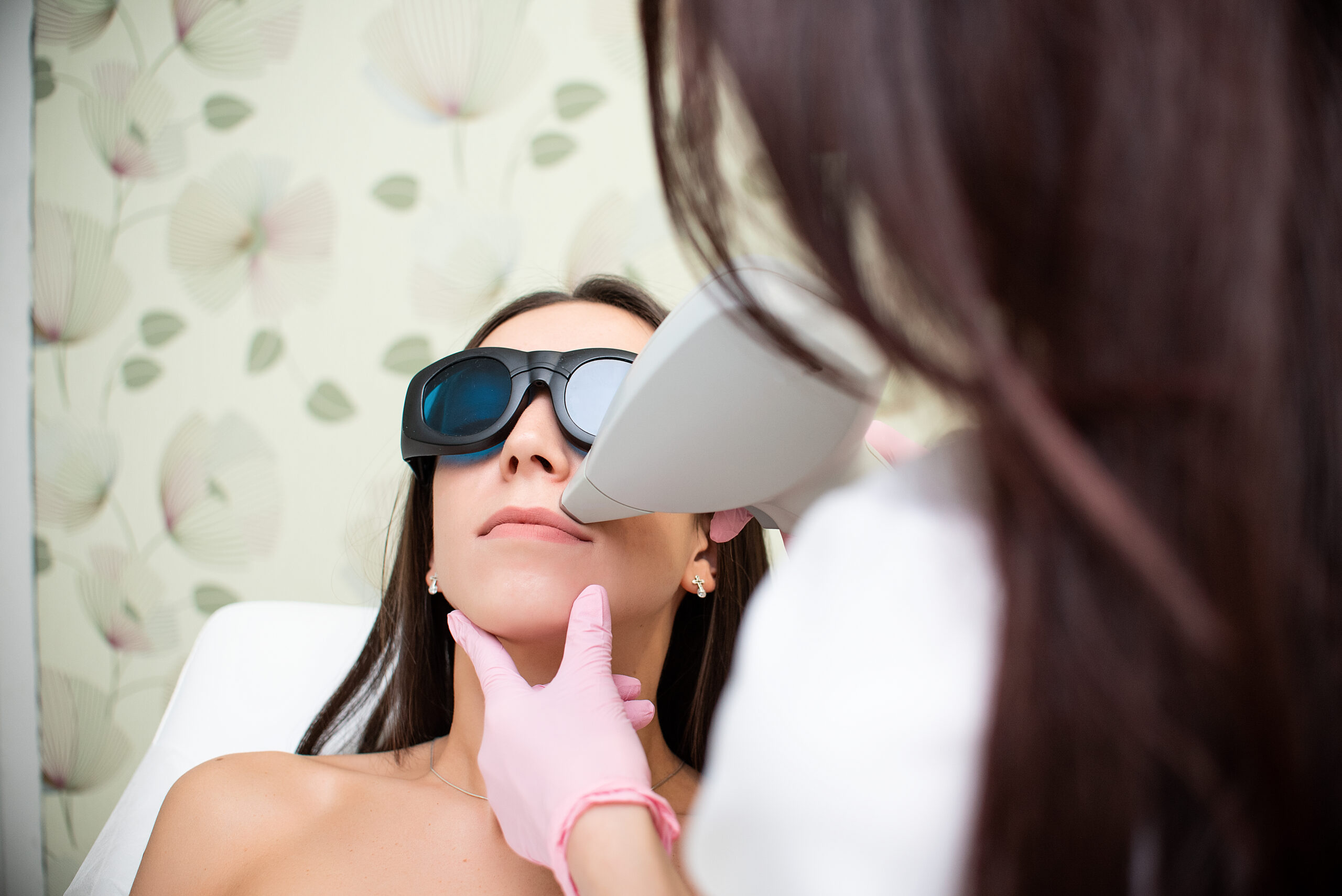Transgender Healthcare “Is Not Cosmetic or Elective. It is Essential”.

Transgender Healthcare “Is Not Cosmetic or Elective. It is Essential”
Alums Gray Babbs and Dani Brooks and MPH student Madeline Stump are working to understand the health experiences of transgender adults in Massachusetts seeking long-term hair removal services to inform policy and address insurance gaps.
Long-term hair removal is an important part of many transgender individuals’ transition journey, as it alleviates dysphoria and is a requisite for some gender-affirming surgeries. However, even when gender-affirming hair removal is covered by insurance, the usual providers of this care—electrologists and aestheticians—are not considered medical providers and thus cannot bill insurance. This roadblock greatly limits access to care.
With funding from an Impact Grant from the Activist Lab at the School of Public Health, alums Gray Babbs (SPH’21) and Dani Brooks (SPH’21) and second-year MPH student Madeline Stump are working with the Massachusetts Transgender Health Coalition to gather survey data on the health experiences of transgender adults in Massachusetts seeking hair removal services to inform policy and address these insurance gaps.
The project has gone through several iterations since its conception in March 2020, initially focusing on characterizing rates of uninsurance and underinsurance among transgender individuals across the Commonwealth. After conversations with the Coalition suggesting that a survey was not the ideal research tool for these questions, Babbs, Brooks, Stump, and alum Meghan Walsh (SPH’21), who is no longer involved in the project, conducted several key informant interviews to better understand the issues that the transgender community in Massachusetts faces regarding health insurance. The team and Coalition ultimately decided to narrow their focus on access to gender-affirming hair removal services.
“Through conversations with practitioners and advocates, we have heard that around less than one-percent of insured transgender people who seek out these services actually get them covered by their insurance. That is not accounting for those people who are uninsured,” says Babbs. “We have to do better.”
Additionally, in preparing for the project, the team found that published literature around access to hair removal for transgender individuals was severely lacking.
“I was only able to find two articles on the topic,” says Stump. “So often, if the research being done on transgender healthcare doesn’t go beyond HIV prevalence, surgery, or hormonal care, it doesn’t exist in the literature.”
To begin to address some of these research gaps, Babbs, Brooks, and Stump hope to publish an in-depth analysis of their survey findings to influence policy change and make a meaningful impact on transgender individuals across the Commonwealth and beyond.
“The great thing about the Impact Grant program is that we have had the opportunity to connect with people who are at the forefront of policy change for trans populations,” says Babbs, who recently spoke about barriers to electrolysis access with the Massachusetts Association of Electrologists. “It has been a learning experience to figure out how to brave this path between being researchers and affecting real policy change as public health practitioners.”
“This is the kind of work that really can make a meaningful difference in people’s lives,” says Brooks. “Even small policy changes can make a huge impact, and it is incredibly exciting to be able to give a voice to the trans folks who are actively dealing with these barriers to care.”
Stump also emphasizes that having the opportunity to play a role in expanding access to healthcare for transgender individuals through this project is especially meaningful to her and the rest of the team because it plays into dispelling a larger narrative around transgender care. “It is not cosmetic or elective; it is essential and necessary,” she says.
From writing their Impact Grant application to now, over a year and a half later, the team has worked closely with the Activist Lab to bring their project to life. This consistent support from the Activist Lab team, Brooks says, has been tremendous in helping them think through some of the logistical challenges of the project and navigate research roadblocks along the way, especially over the course of the COVID-19 pandemic.
The funding provided by the Impact Grant has also allowed Babbs, Brooks, and Stump to directly compensate survey participants, which is something that they strongly believe in.
“It is important to compensate people for their time, but in our case especially, since we are asking questions that are very personal to their experiences. We are asking them to do a lot of emotional work,” says Brooks. “I don’t think that this project would exist without the Activist Lab’s support in this way.”
Among the many people who have been involved in the project and supported it along the way, including SPH faculty members Sarah Gordon, assistant professor of health law, policy & management, and Allegra Gordon, assistant professor of community health sciences, Babbs highlights that the Activist Lab team has served as a core guiding resource for them throughout. “They have created an amazing platform for us to explore our ideas and achieve our goals. They have truly been the gravity that has made this a real project for us rather than just an ambition,” he says.
Read more about the Impact Grant program at SPH here. If you are interested in learning more or getting involved in the gender-affirming hair removal project, you can contact Gray Babbs at gbabb@bu.edu.
Comments & Discussion
Boston University moderates comments to facilitate an informed, substantive, civil conversation. Abusive, profane, self-promotional, misleading, incoherent or off-topic comments will be rejected. Moderators are staffed during regular business hours (EST) and can only accept comments written in English. Statistics or facts must include a citation or a link to the citation.